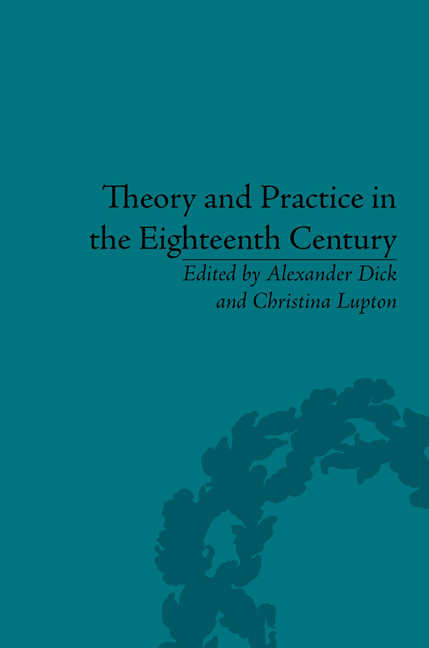Book contents
- Frontmatter
- CONTENTS
- Notes on Contributors
- Introduction
- I Writing Philosophy
- II Reading Hume
- III Thinking Literature
- 9 The Epistemology of Genre
- 10 The Primitive in Adam Smith's History
- 11 Can Julie Be Trusted? Rousseau and the Crisis of Constancy in Eighteenth-Century Philosophy
- 12 After the Summum Bonum: Novels, Treatises and the Enquiry after Happiness
- 13 Music vs Conscience in Wordsworth's Poetry
- Notes
- Works Cited
- Index
11 - Can Julie Be Trusted? Rousseau and the Crisis of Constancy in Eighteenth-Century Philosophy
from III - Thinking Literature
- Frontmatter
- CONTENTS
- Notes on Contributors
- Introduction
- I Writing Philosophy
- II Reading Hume
- III Thinking Literature
- 9 The Epistemology of Genre
- 10 The Primitive in Adam Smith's History
- 11 Can Julie Be Trusted? Rousseau and the Crisis of Constancy in Eighteenth-Century Philosophy
- 12 After the Summum Bonum: Novels, Treatises and the Enquiry after Happiness
- 13 Music vs Conscience in Wordsworth's Poetry
- Notes
- Works Cited
- Index
Summary
The cleft between being and appearance in interpersonal and social relations has long been regarded as the unifying and driving problem in Rousseau's work. In the context of eighteenth-century moral psychology, Rousseau's preoccupation with ‘seeing through’ others imports empiricist concerns with the limitations of the senses into the realm of relations between persons and thereby imagines ethical aspirations as consistent with and contingent upon epistemological possibilities. Rousseau's ideal of transparency, whether expressed as nostalgia for a lost period of human or personal history, or as utopian yearning for inescapably public forms of life, or as indulgent surrender to imaginative visions of harmonious beautiful souls, can be understood as displacing an ideal of sympathy that many of Rousseau's philosophical precursors and contemporaries assumed to be a natural, irresistible feeling for others.
Earlier in the eighteenth century, questions about the moral implications of natural sympathy arise among proponents of sentimentalism even as epistemological questions about access to the thoughts and feelings of others are foreclosed. Shaftesbury, for example, assumes an uncomplicated continuity between natural affections and benevolence or good will towards others. Hume, by contrast, offers a more complex view of sympathy: it is the source of the ‘sentiments’ upon which ‘all morality depends’, but does not, in itself, motivate virtuous action and at times conflicts with the broader humanitarianism of justice. Kant would later separate the question of feeling from duty towards the other, arguing that sympathy is an amoral sentiment, contingent, inconsistent and unrelated to recognition of the other as an intrinsically valuable being, worthy of respect and esteem. And yet the recognition Kant's ethics demands might itself best be understood as an abstract distillation of sympathy in its most basic sense – as involving appreciation of the other as like oneself, as an equal. What Rousseau appears to take from the contradictions and complexities of eighteenth-century moral sentimentalism is an insistence on the ethical orientation towards others entailed by sympathy which is proto-Kantian in its austerity and absoluteness (where to feel for the other obliges me to respect and respond to the other as a fellow human being) and an unrepressed anxiety about the epistemic basis of sympathetic recognition (how can I know the other to be human, like me, and therefore worthy of respect and esteem?).
- Type
- Chapter
- Information
- Theory and Practice in the Eighteenth CenturyWriting Between Philosophy and Literature, pp. 193 - 210Publisher: Pickering & ChattoFirst published in: 2014

